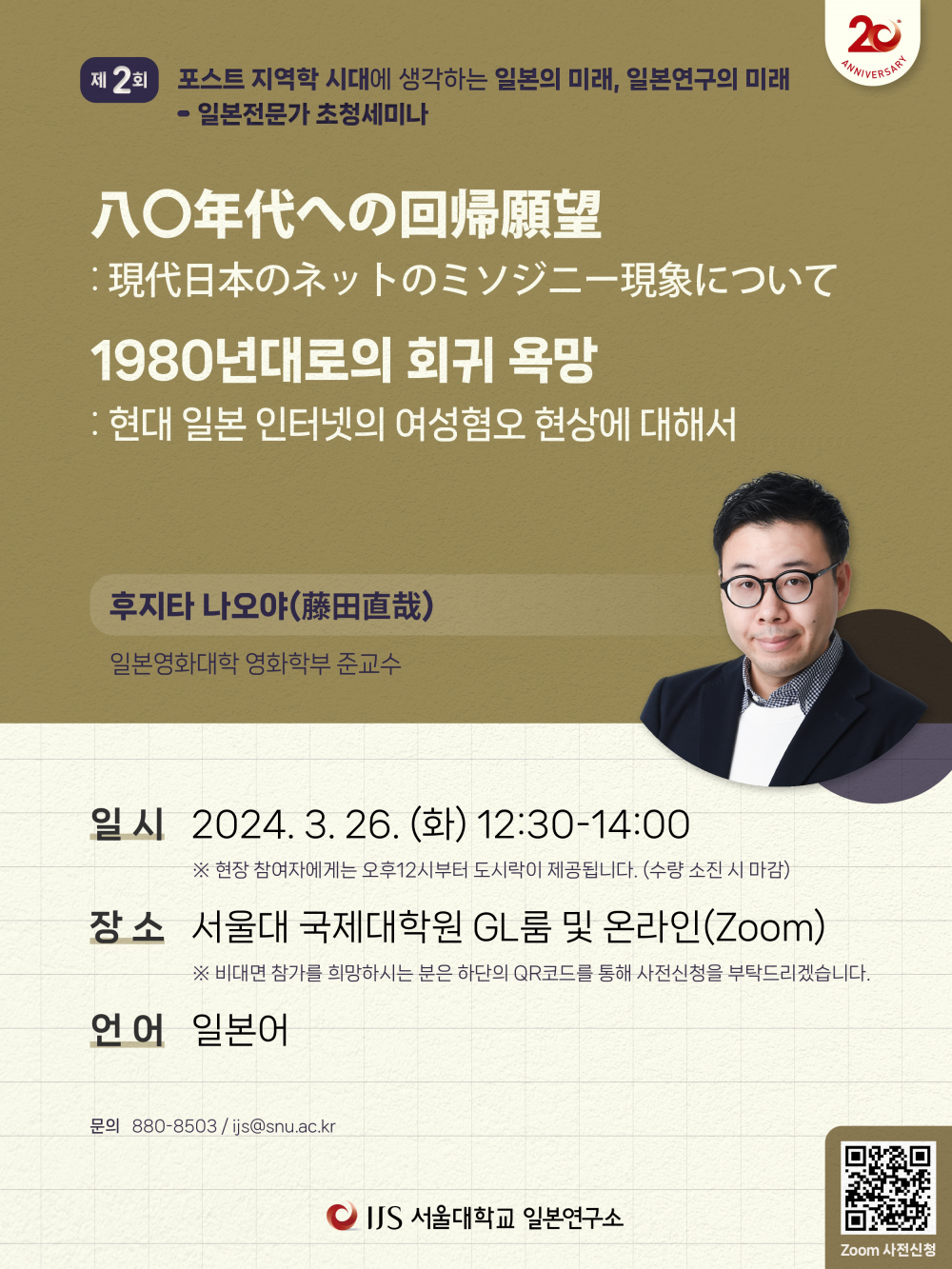
Thirty years have passed since the end of the Cold War and globalization, and the "region" is in the midst of a drastic change in redistricting. Accordingly, the knowledge system that looks at the "region," that is, the content and method of "regional research," is being newly constructed across boundaries.The era of "post-regional research" is now opening. Meanwhile, Seoul National University's Institute for Japanese Studies, which celebrated its 20th anniversary, invited experts from the front lines of each field to prepare eight lecture series to explore the future of Japan and the future of Japanese research.
As the second lecture, we will invite Professor Fujita of Japan Institute of the Moving Image to give a lecture as follows, so we look forward to the participation of interested people.
Date:2024.3.26 (Tues) 12:30-14:00
Venue:SNU GSIS (Bldg 140 ) & Zoom
*This seminar will be held by hybrid (offline/online)。
*Anyone can participate offline without a reservation.Lunch will be served from 12 p.m. (The number is limited, so we will close as soon as we run out.)
*If you wish to participate online, please make a reservation in advance at the link below
https://forms.gle/TdsoB9xZxvmRq8Lv9
Lecturer:Fujita Naoya (Assistant Professor, Department of Film, Japan Institute of the Moving Image)
Title:Desire to Return to the 80's - Regarding the Misogyny Phenomenon of the Internet in Modern Japan
Language:Japanese
Summary:
Like Korea and the United States, online misogyny is spreading in Japan. Moreover,like the United States, it shows ties to otaku culture and subculture. Is this a coincidence? Is it inevitable?
In this presentation, we will discuss the issues considering from the perspective of the continuity of subculture, otaku culture, and net culture regarding the 80s, 90s, and zeroes and 10s. People who have experienced post-95 economic stagnation and severe economic competition have escaped to anime, games and the Internet.
As social networking services become more generalized and sound, people who are de-socialized with anarchy created by the media such as and etc are losing their places.
In the 1980s, a sense of being "invaded" or "deprived" arose amid such changes in the times.There is a desire to return to an era in which people did not have to think about the seriousness of society or reality as shown in .
Inquiry:SNU-IJS (880-8503 / ijs@snu.ac.kr)